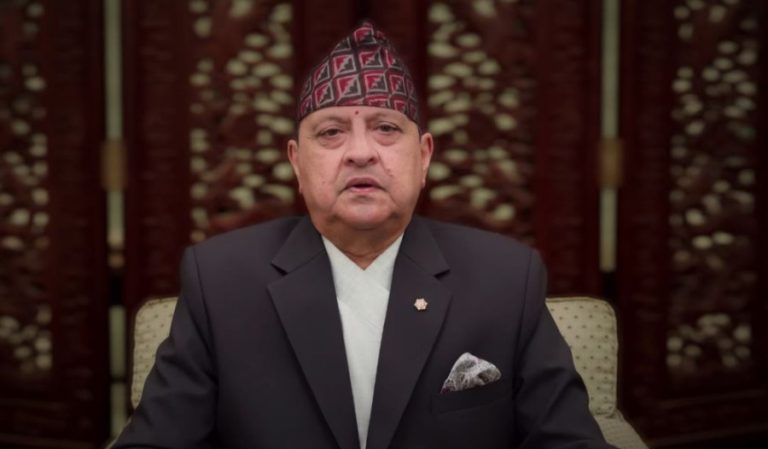Former King Gyanendra Shah has spoken out in favor of multiparty democracy and a constitutional monarchy. In a video message released on the eve of Nepali New Year 2082, he stressed the need for national unity and peaceful expression.
“We have always supported the tradition of multiparty democracy under a constitutional monarchy, based on the people’s will,” said Shah.
His message came weeks after a violent protest in Tinkune, Kathmandu on March 28. The protest, organized by pro-monarchy supporters, turned deadly. Two people lost their lives in the chaos, including video journalist Suresh Rajak and Kirtipur resident Sabin Maharjan. Many others were hurt as the demonstration got out of control.
Former King Mourns Lives Lost in Protest
Shah expressed deep sorrow over the incident. “We are extremely saddened by the human and physical losses from the violence, arson, and destruction during the recent public protest,” he said.
He reminded the people that no system or belief is greater than civil freedom. Shah added, “Every social and political group has the right to express its views, but this must be done peacefully and responsibly.”
Calls for National Unity and Dialogue
In his message, the former king urged people to avoid division and conflict. He warned against being split by ideologies or identities.
“The future of Nepal lies in the unity of its people,” Shah said. He also pointed out that Nepal must leave behind old political arguments. “The world has moved ahead, but we are stuck in old cycles. Now is the time to focus on Nepal and its future,” he stated.
He called for dialogue, consensus, and cooperation to solve the nation’s problems.
Political Tension and Growing Pro-monarchy Protests
Shah’s statement follows a similar message he shared on Democracy Day, February 18. That message drew attention in national politics. After that, pro-monarchy groups gathered and formed a committee led by Nabaraj Subedi, a leader from the Panchayat era.
The Subedi-led group called for the March 28 protest in Tinkune. The demonstration led to violence, vandalism, arson, and looting in different areas.
In the aftermath, many lawmakers from major political parties have called on the government to hold Shah responsible. They accused him of being the mastermind behind the recent protests, including the deadly Tinkune demonstration.
What’s Next for Nepal’s Politics?
The former king’s latest remarks have added fuel to the already heated debate over Nepal’s political future. While some support the idea of a constitutional monarchy, others strongly oppose it.
As political groups, citizens, and leaders continue to debate the country’s future, calls for peaceful dialogue and national unity grow louder.


